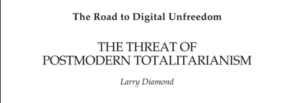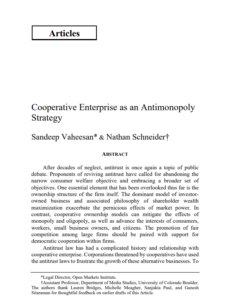The Road to Digital Unfreedom: The Threat of Postmodern Totalitarianism
 Author: Larry Diamond
Author: Larry Diamond
Date of Publication: 2019
Once hailed as a great force for human empowerment and liberation, social media and related digital tools have rapidly come to be regarded as a major threat to democratic stability and human freedom. Based on a deeply problematic business model, social-media platforms are showing the potential to exacerbate hazards that range from authoritarian privacy violations to partisan echo chambers to the spread of malign disinformation. Authoritarian forces are also profiting from a series of other advances in digital technology, notably including the revolution in artificial intelligence (AI). These developments have the potential to fuel a “postmodern totalitarianism” vividly illustrated by China’s rapidly expanding projects of digital surveillance and social control. They also pose a series of challenges for contemporary democracies. [View Resource]
The Road to Digital Unfreedom: The Threat of Postmodern Totalitarianism Read More »





 Author: Gábor Mélypataki
Author: Gábor Mélypataki Authors: Sandeep Vaheesan and Nathan Schneider
Authors: Sandeep Vaheesan and Nathan Schneider
